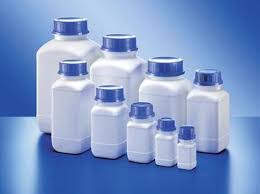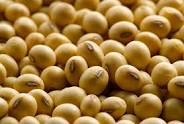Plastic Chairs and Table Production in Nigeria; The Feasibility Report.

Plastic have played a vital role in the growth phase of the Nigerian economy and continue to do so. From packaging to agriculture, automobiles and electronics plastics have revolutionized all areas because of its functionality, economics, aesthetics and reliability.
Plastic have made all products affordable to the Nigerian consumer and have helped in raising the lifestyle of the common man. Consequently, a lot more products manufactured in Nigeria today either contain plastics or are contained in plastics.
Plastic chairs and tables are made of plastics and used for seating in different places and occasions. They are used in public places such as restaurants, coffee shops, libraries, schools, etc. Plastic chairs and tables are replacing chairs and seats made from wood, plywood and metals, the chairs have some unique properties which made them “better” choices to consumers. They are light in weight, less expensive than other types of chairs, more comfortable than ordinary wooden chairs, etc. Plastic molded chairs are of two types: plastic molded base with steel frame and a complete plastic molded chair.
Though the material that plastic chairs and tables are made from is imported raw materials (about 60% of the products is imported into the country) which costs foreign exchange, the advent and widespread use of plastic chairs and tables contribute to the conservation of our forest resources since they replace chairs and tables made of wood.
For this reason alone, the domestic production of plastic chairs and tables should be encouraged. It is only in the last 15 to 20 years, that the use of plastic chairs was introduced to the Nigerian market. Within this short time the use of the product has spread to practically all urban areas of the country.
The use of plastic chairs and tables will expand and increase in the future. The product is also used by the rural population.
Machinery and equipment needed includes injection moulding machines with auxiliary machine, moulds, robots, transformer, project vehicles, forklift, wood pallets, AGO / PMS storage tank, generator and weighing scale.
The output of the plant is as follows big chair – the cycle time is 60s, so one hour it can produce around 60 pieces, so one day will be around 60*20 hours = 1,200 pieces, each chair is 2 kg in weight.
Baby’s chair – the cycle time is 50s, so one hour it can produce around 72 pieces, so one day will be around 72*20 hours = 1,440 pieces. Each chair is 1.5 kg in weight.
Table – the cycle time is 70s, so one hour it can produce around 51 pieces, so one day will be around 51*20 hours = 1,200 pieces. Each chair is 3.5 kg in weight.
This report is to examine the financial viability or otherwise of establishing a plastic chair and table (big tables/chairs and baby’s chairs) production plant in Lagos using polypropylene (PP) granules as the raw material.
Table of Contents
EXECUTIVE SUMMARY 1.0 Business Overview 1.1 Description of the Business 1.2 Vision and Mission Statement 1.3 Business Objective 1.4 Value Proposition 1.5 Critical Success Factor of the Business 1.6 Current Status of Business 1.7 Description of the Business Industry 1.8 Contribution to Local and National Economy 2. Marketing Plan 2.1 Description of product 2.2 Product Packaging and delivery 2.3 The Opportunity 2.4 Pricing Strategy 2.5 Target Market 2.6 Distribution and Delivery Strategy 2.7 Promotional Strategy 2.8 Competition 3. Production Plan 3.1 Description of the Location 3.2 Raw Materials 3.3 Production Equipment 3.4 Production Process 3.5 Production Cost 3.6 Stock Control Process 3.7 Pre-Operating activities and expenses 3.7.1 Operating Activities and Expenses 3.8 Project Implementation Schedule 4.0 Organizational and Management Plan 4.1 Ownership of the business 4.2 Profile of the promoters 4.3 Key Management Staff 4.3.2 Management Support Units 4.4 Details of salary schedule 5. Financial Plan 5.1 Financial Assumption 5.2 Start- up Capital Estimation 5.3 Source of Capital 5.4 Security of Loan 5.5 Loan Repayment Plan 5.6 Profit and Loss Account 5.7 Cash Flow Analysis 5.8 Viability Analysis 6.0 Business Risks and SWOT Analysis 6.1 Business Risks 6.2 SWOT Analysis
Project Specification:
Additional Info
Get this Report
Direct bank transfer
To order the report, Please do pay the sum of ₦150,000 into
Account Name : Foraminifera Market Research Ltd
Account Number : 274 20 569 37
Account Name : Foraminifera Market Research Ltd
Account Number : 101 76 603 95
Account Name : Foraminifera Ventures
Account Number : 011 66 066 32
Make your payment directly into our bank account. Please use your Order ID as the payment reference. Your order will not be shipped until the funds have cleared in our account.
Instructions
After payment call us on 01 -29 52 413 / 08033782777 or email us at foraminiferamarketresearch@yahoo.com with the payment details. After payment confirmation, the soft copy of the report would be sent to you within 24 hours.



